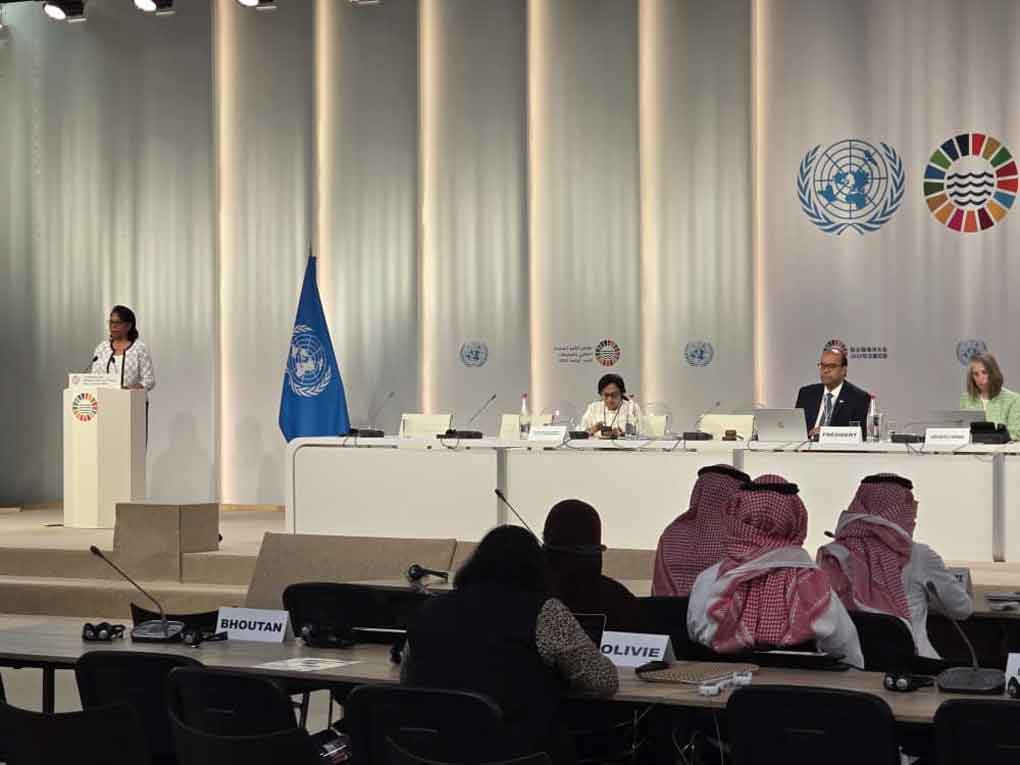Cuba warned today at the United Nations Conference on Oceans about the lack of progress in the implementation of goal 14 of the 2030 Agenda for Sustainable Development, dedicated to the protection of these marine spaces.
Speaking on the second day of the Nice-based forum, the head of the island’s delegation, Deputy Prime Minister Inés María Chapman, insisted on the urgency of transforming human behaviour towards the oceans, which are threatened by phenomena such as overexploitation, pollution and climate change.
We come to this Conference driven by the urgency of mobilising the international community to protect marine ecosystems and strengthen ocean governance, she said.
In September 2015, the UN General Assembly adopted the 2030 Agenda, a multilateral instrument that includes in its goal 14 the protection and sustainable management of oceans, seas and marine resources.
Chapman called for the materialisation of this tool to be strengthened, and in particular in relation to the issue that is bringing delegations from 180 countries to the southern French city, more than 50 of them headed by heads of state and government.
Cuba trusts in multilateralism as the only way to solve environmental challenges, the effects of which are not limited to national borders and are not proportional to the climate debt accumulated by each state, the deputy prime minister pointed out.
She also urged the signatory nations of the Agreement on the Conservation and Sustainable Use of Marine Biological Diversity in Areas beyond National Jurisdiction to intensify efforts for its early entry into force.
Regarding the results of the Antillean nation in the protection and sustainable use of the oceans, he mentioned that it can showcase concrete advances at the forum, which will be in session until Friday, based on initiatives such as the National Biodiversity Programme until 2030.
However, the main obstacle to Cuba’s climate adaptation is the economic, commercial and financial blockade imposed by the United States, which prevents the acquisition of modern and efficient equipment, hinders the transition to renewable energies and access to international financing for environmental projects, and restricts inputs for reconstruction after the impact of extreme weather events, he denounced.
Chapman has an intense agenda in the context of his participation in the Third United Nations Conference on Oceans, a meeting that follows those held in New York (2017) and Lisbon (2022).
In this regard, he met today with the Director General of the International Atomic Energy Agency, Rafael Grossi, with whom he discussed issues of cooperation in sectors such as food production, nuclear medicine and environmental protection.




